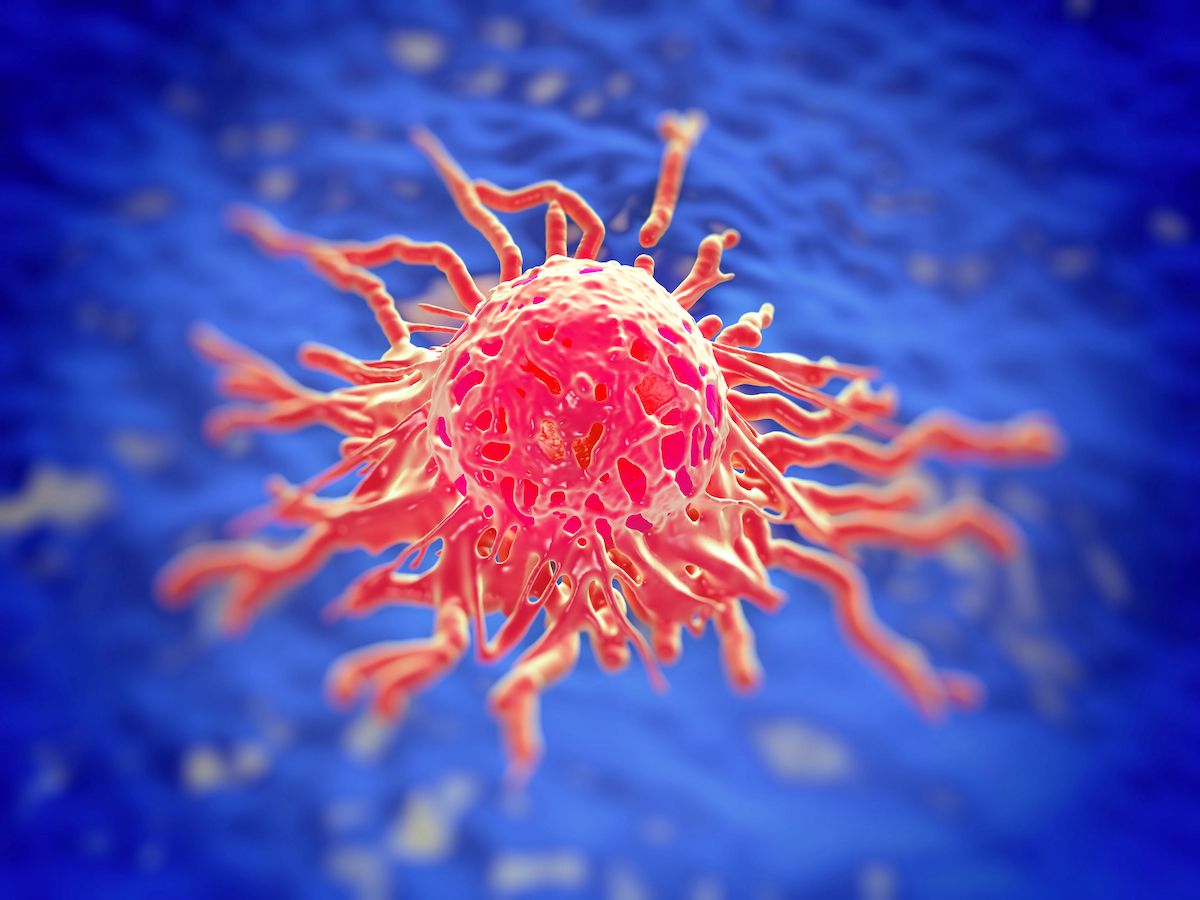Nirogacestat Receives Positive Opinion from CHMP in Desmoid Tumors
Results from the phase 3 DeFi trial showed superior progression-free survival with nirogacestat vs placebo in patients with progressing desmoid tumors.
Results from the phase 3 DeFi trial showed superior progression-free survival with nirogacestat vs placebo in patients with progressing desmoid tumors.

The Committee for Medicinal Products for Human Use (CHMP) of the European Medicines Agency (EMA) has recommended the approval of oral γ-secretase inhibitor nirogacestat (Ogsiveo) as monotherapy in adult patients with progressing desmoid tumors requiring systemic treatment, according to a press release from the developer, SpringWorks Therapeutics.1
The European Commission (EC) is expected to make a final decision regarding the approval in Q3 of 2025. The positive opinion was based on a marketing authorization application for nirogacestat supported by results from the phase 3 DeFi trial (NCT03785964).2 Results from the trial were shared in the New England Journal of Medicine.3
Previously, in September 2019, the EC granted the agent orphan drug designation in the same indication.4 The agent was also approved by the FDA in November 2023.5
With a median follow-up of 15.9 months, the Kaplan-Meier–estimated median progression-free survival (PFS) was not estimable (NE) in the nirogacestat group vs 15.1 months in the placebo group (95% CI, 8.4-NE), demonstrating a 71% reduction in the risk of disease progression or death with nirogacestat (HR, 0.29; 95% CI, 0.15-0.55; P <.001). At 1 year, the likelihood of being event-free was 85% (95% CI, 73%-92%) with nirogacestat and 53% (95% CI, 40%-64%) with placebo; at 2 years, it was 76% (95% CI, 61%-87%) and 44% (95% CI, 32%-56%), respectively. Subgroup analyses revealed that PFS was consistent across subgroups based on sex, focality, treatment status, tumor location, prior treatments, genetic mutation status, and history of familial adenomatous polyposis.
The confirmed objective response rate (ORR) was 41% with nirogacestat and 8% with placebo (P <.001), with complete responses observed in 7% and 0% of patients. The median time to confirmed first response was 5.6 months and 11.1 months, respectively; the median best percent change in target-tumor size was −27.1% (range, −100% to 37%) and 2.3% (range, −100% to 47%).
“Desmoid tumors can have a profound impact on patients as well as their loved ones, and the positive CHMP opinion underscores the potential benefit of nirogacestat for these patients,” stated Bernd Kasper, MD, PhD, professor at the University of Heidelberg, Mannheim Cancer Center in Mannheim, Germany, and principal investigator of the DeFi trial, in the press release.1 “It is very encouraging that a significant number of people taking nirogacestat experienced reductions in their tumor size and also rapid and sustained relief of their desmoid tumor symptoms, including pain.”
DeFi enrolled a total of 142 patients who were randomly assigned, in a 1:1 ratio, to receive 150 mg of nirogacestat twice daily (n = 70) or matching placebo (n = 72). Patients were 18 years or older with histologically confirmed progressing desmoid tumors who either had not received prior treatment for progressing desmoid tumors and were not amenable to surgery or those who had refractory or recurrent disease after at least 1 line of therapy.
The trial’s primary end point was PFS per blinded independent central review. Secondary end points included ORR, duration of response, change in tumor volume measured by MRI, changes in patient-reported outcomes, and safety and tolerability.
Concerning pain, disease-specific symptom severity, and disease-specific physical functioning, nirogacestat showed significant and clinically meaningful benefits compared with placebo at cycle 10.
Regarding safety, adverse events (AEs) of grade 3 or higher occurred in 55% of the nirogacestat group and 17% of the placebo group, with AEs leading to early discontinuation of treatment occurring in 20% and 1%. The most common AEs of any grade were diarrhea (84% vs 35%), nausea (54% vs 39%), fatigue (51% vs 36%), hypophosphatemia (42% vs 7%), and maculopapular rash (32% vs 6%).
Ovarian dysfunction occurred in 75% of women of childbearing potential who received nirogacestat vs 0% who received placebo.
References
- SpringWorks Therapeutics receives positive CHMP opinion for nirogacestat for the treatment of adults with desmoid tumors. News release. SpringWorks Therapeutics, Inc. June 20, 2025. Accessed June 20, 2025. https://tinyurl.com/yc7f7a8e
- SpringWorks Therapeutics announces European Medicines Agency validation for marketing authorization application of nirogacestat for the treatment of adults with desmoid tumors. News release. SpringWorks Therapeutics, Inc. February 29, 2024. Accessed June 20, 2025. http://tinyurl.com/yzz53n8f
- Gounder M, Ratan R, Alcindor T, et al. Nirogacestat, a γ-secretase inhibitor for desmoid tumors. N Engl J Med. 2023;388(10):898-912. doi:10.1056/NEJMoa2210140
- European Commission grants orphan drug designation for nirogacestat for the treatment of soft tissue sarcoma. News release. SpringWorks Therapeutics, Inc. September 24, 2019. Accessed June 20, 2025. https://tinyurl.com/46y9z3fp
- FDA approves nirogacestat for desmoid tumors. FDA. November 27, 2023. Accessed June 20, 2025. https://tinyurl.com/3zezwe53
Sarcoma Awareness Month 2023 with Brian Van Tine, MD, PhD
August 1st 2023Brian Van Tine, MD, PhD, speaks about several agents and combination regimens that are currently under investigation in the sarcoma space, and potential next steps in research including immunotherapies and vaccine-based treatments.